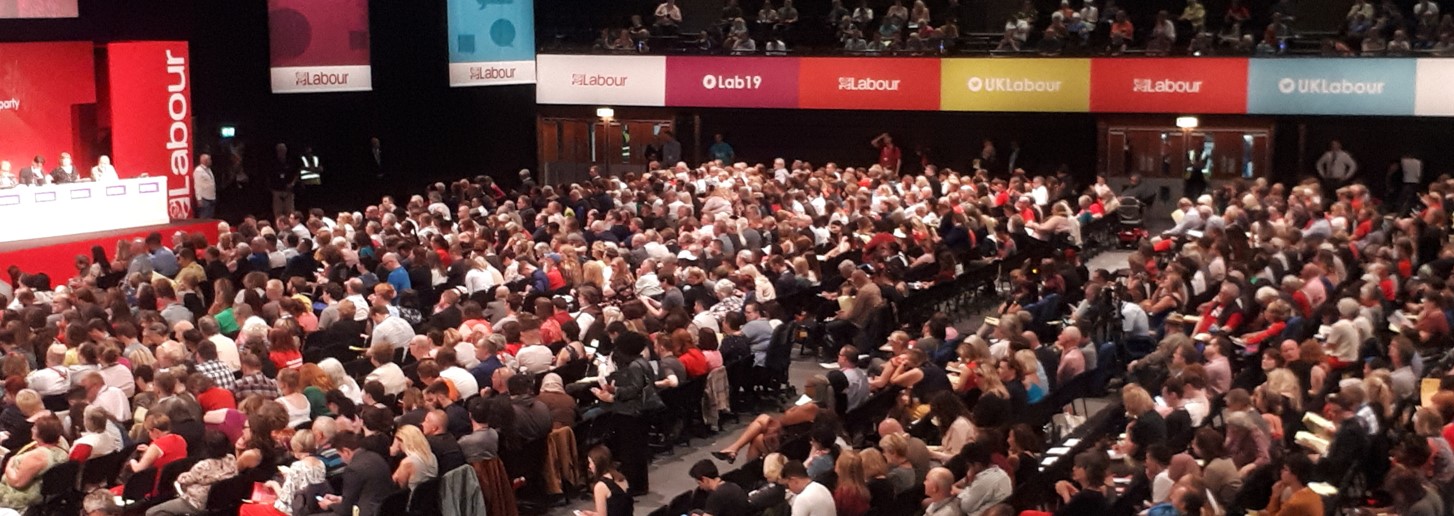A number of recent events give some insight into likely developments in the Tory Party and the Labour Party. By-elections always have a smaller turnout than in general elections and there are often local factors involved, so their interpretation has to be taken with a pinch of salt. That said, we can take away several pointers from Thursday’s results and other events last week.
1. The Tories are planning for a big defeat
Even before these by-elections, the Tories were anticipating a big defeat in the next general election. The Financial Times on July 11 ran a feature on the gloom on the government benches. “I just want the election over and done with,” one miserably MP told the FT correspondent, “At least it would put us out of our misery. I’m trying to find someone to talk to about opportunities after parliament — but who wants to hire useless one-term former MPs?”
“We are on for a massive defeat”, another Tory commented, “We aren’t talking margins of error in opinion polls any more. The public are tuning out now. They are psychologically exhausted by this government.”
The grim mood in the Tory ranks has been confirmed by the by-elections. Even allowing for the close shave in Uxbridge and South Ruislip, Boris Johnson’s former constituency, the Tories have been hammered in these by-elections, which are putting Labour around twenty points ahead in the opinion polls.
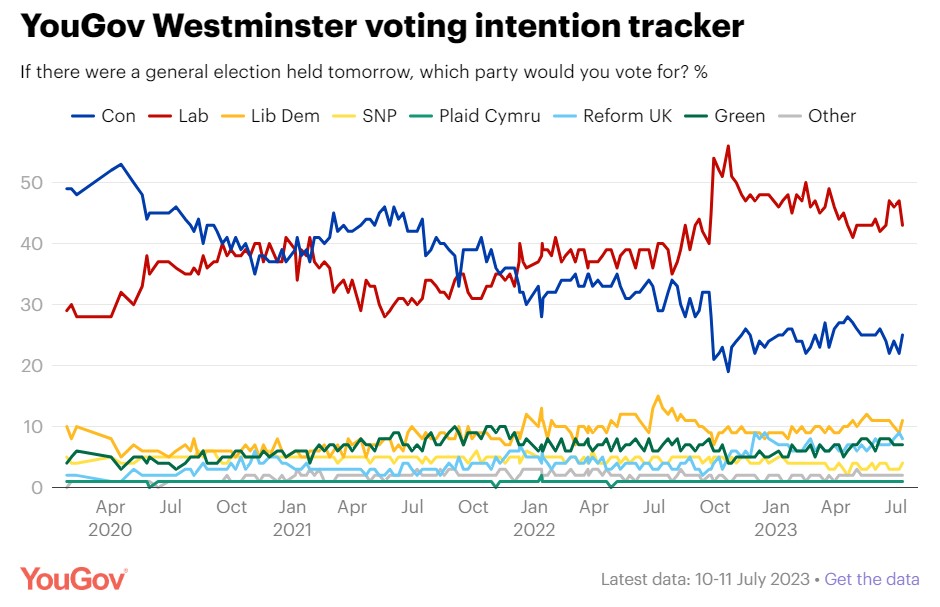
The predominant reason for the swings against the Tories is the collapse in living standards and the relentless increase in the price of all the basic necessities of life: housing, food prices, energy and transport. It is not as if the attack on living standards is a ‘natural’ and unpredictable event like the weather; it is a direct result of the ‘greedflation’ built into the capitalist system and a deliberate policy of transferring wealth and income from the poor to the rich. This government, probably more than any other in history, is the direct political representative of the rich and super-rich.
It is not surprising, therefore, that there is a groundswell of anger and a surge of opposition. There is not so much a wind of change as a gale and Tory MPs can feel it. As another article in the Financial Times commented (July 21), Thursday was indicative of “the Conservatives’ startling implosion…now paying the price for the unalluring record of their carousel of premiers over 13 years”.
“The flagship Brexit policy has not brought the benefits its supporters thought they had been promised. Voters bowed by a cost of living crisis survey stagnant growth, sticky inflation, public-sector unrest and floundering services, despite the highest tax burden since the late 1940s”.
There is no likelihood that the Tories will make up much ground between now and the next general election. Indeed, the demands from within the Tory Party for the government to water down its already meagre ‘green’ policies might please a few Tory die-hards but will only alienate the government further from young voters.
2. Labour should have won Uxbridge
While the Tory defeats in Selby and Ainsty, and Somerton and Frome were on a huge scale, Labour failed to overturn a smaller majority of just over 7,000 in Uxbridge and South Ruislip. In Selby, as a measure of how serious the Tory Party crisis is, Labour achieved the biggest-ever turnover for an opposition party, on a swing of 21 per cent. Although the majority overturned in Frome was lower, the swing against the Tories was even higher, at 28%.
There was clearly some tactical voting, with a nod and wink from the leaders of the Lib-Dems and Labour, so that in Frome Labour’s vote collapsed to just over a thousand, and in Selby the Lib-Dems got a similar figure. If there had been a Labour leadership fighting for real change, instead of the grey, featureless, policy vacuum around Starmer, Labour could have won Frome and Uxbridge.
In the latter case, the Tories’ narrow victory has been put down to the London Labour Mayor, Sadiq Khan extending the Ultra Low Emissions Zone (ULEZ) to outer London Boroughs. ULEZ is without doubt a good policy in terms of the benefit for the health of Londoners, but it has unfortunately been presented by Khan in such a way that it is perceived by many voters as a threat to their living standards.
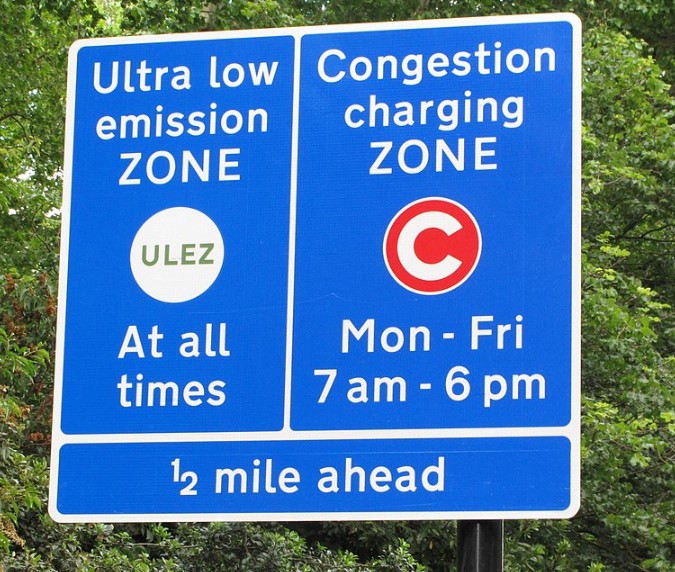
If the extension of ULEZ was resented by some voters in Uxbridge, it was not necessarily because they are opposed to the principle of clean air, but a reflection of the expense they will incur in putting it into operation. It is simply not feasible for many workers, particularly those with a small business or the self-employed, to use public transport – not that this is by any means ideal or cheap to use – and it is prohibitively expensive to scrap their old vehicles. For those unable to buy new vehicles, the additional daily charge amounts to £250 in a four-week period, which is extortionate.
There is a ‘scrappage’ scheme put forward by Transport for London, but it is extremely limited. It is only £110mn and will be spent on a first-come first-served basis. Eligibility depends on living in one of the 32 London boroughs, being disabled, or being in receipt of benefit. Even for those who can benefit from the scheme, there is nowhere near enough cash given out to buy a new emissions-compliant vehicle.
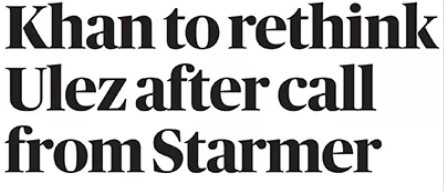
Labour should be championing an efficient, free, integrated and publicly owned transport system for London, as a means of drawing commuters into mass transit. Khan and the Labour Party should also be offering an adequate scrappage scheme for vehicle replacement that does not pauperise sole traders and small businesspeople. Unfortunately, both Transport for London and the national Labour leadership have accepted the financial limitations of capitalism and that puts a good policy in jeopardy.
During the Uxbridge by-election, when the Tories focused all of their campaign on ULEZ – making it virtually a ULEZ referendum – the Labour candidate was wobbly on it. “Actually”, he said, referring to the Tories, “they’ve got a point”, adding that he thought ULEZ extension should be delayed. This comment, widely circulated, amounted to a surrender note. The result was that enough voters drifted from Labour to the Green Party to wipe out any majority Labour could have had.
3. It is despite Keir Starmer that Labour is forging ahead in the polls
Political pundits have happily repeated the lie that Labour’s last general election result was the “worst since 1935”, contrasting it to Starmer’s “triumph” in these by-elections. But as we have pointed out many times, Labour under Corbyn got a higher percentage vote in 2019 than the two previous Labour leaders, Gordon Brown and Ed Miliband, in the previous two general elections.
There is a desperate need for change, but the promise of that is not coming from Starmer, other than the word itself. The yearning for real, substantial change comes from the relentless drive to pauperise the majority of the population. People are fed up to the back teeth with ‘rip-off’ Britain, with greed, corruption and ostentatious wealth at the top, while their own lives become ever more uncertain.

But in contrast to Labour’s rise in the opinion polls, Starmer’s personal poll ratings are well behind the Party’s. Many polls have shown that he is not personally regarded much better than Sunak, and even the most recent has him only ten points ahead of Sunak, half the lead of his party.
Kier Starmer is like a political homeopath, thinking that the more he dilutes his policies, the more attractive his leadership will be, but in fact the opposite is true. Even commentators who are not particularly left wing are asking what he believes in.
Referring to his brand of leadership, John Harris in the Guardian (July 16), for example, suggests that “From local councillors to climate activists, there is a growing group of people who won’t stand for Labour inaction.”
Frances Ryan, in the same paper three days earlier, noted that Starmer, “appears to spend more time ruling out all the things that Labour won’t do if it wins power than selling the things it will...After thirteen years of Tory rule, the public have every right to expect the opposition to be offering meaningful change. As it stands, ‘Britain: pretty much like now but slightly better’ is the election slogan they will get.”
A Labour government is seen by millions of workers as the best, or the only realistic alternative to an awful Tory government, despite Starmer, but it cannot be ruled out that his political homeopathy will begin to turn voters off.
4. Within the Labour Party there will be growing opposition to Starmer
When Keir Starmer publicly rowed back on his previous commitment to abolish the Tories’ two-child benefit cap, there was an outcry even among his former supporters. Shadow cabinet members rallied around Starmer in TV interviews and in the media, but the damage was done and charities, left MPs and many on the right of the party condemned his new U-turn. The meme ‘Sir Kid Starver’ trended on social media.
Anas Sarwar, the leader of the Labour Party in Scotland said that he would be pressing for a change in this policy, as did Scottish MP and arch standard-bearer for the right wing, Ian Murray. This iniquitous policy is alone directly responsible for a quarter of a million children being in poverty, four fifths of them in local authorities controlled by Labour.
As the Guardian reported, “a number of senior Labour figures who represent some of the areas worst hit by the policy have spoken out against the leadership’s stance”. Andy Burnham, Mayor of Greater Manchester where 23,750 families are affected by the cap, said in an interview that “when there is the headroom to do something, this clearly should be at the front of the queue”.

Most significant of all, there were reports on social media that the representatives of both Unite and the GMB walked out of a meeting of Labour’s National Policy Forum this weekend, in protest at the attempt by Labour staffers to dilute policy on workers’ rights. The NPF is a convoluted and complex committee system that gives the impression of democracy in the determination of election policy, although in practice, it is the Labour leader and his team who decides strategy, including the manifesto.
If these reports are correct – and we have yet to get any open and transparent feedback from the NPF – it is a significant development. We would expect Unite to make a stand, but the GMB has been one of Starmer’s most staunch ‘enablers’ in his march to the right and for this union to protest against the dilution of policy is an important departure.
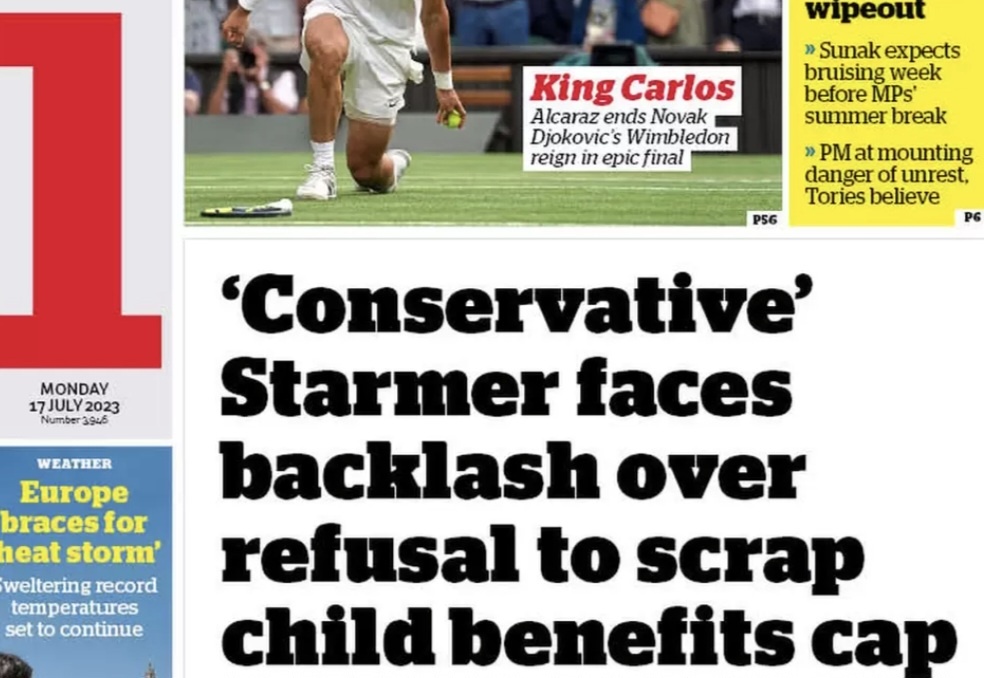
Of course, we should not exaggerate the scale of the protests against Starmer at this stage, but the abandonment of the two-child benefit policy, the watering down of other policies and even the banning of Jamie Driscoll from the North East Mayor selection, is leaving the cabal around Starmer and Reeves more isolated than ever from Labour’s rank and file.
When Labour is elected to office and the economic crisis of British capitalism pushes the government towards a policy of ‘Labour austerity’, the relatively muted mutterings of opposition that we hear today will grow to a crescendo. As we have argued all along, Keir Starmer is not the Labour Party and the Labour Party is not just Keir Starmer.
5. The idea of a new party to the left of Labour is fantasy politics
Notwithstanding the relatively small swing to Labour in Uxbridge, the overall result across the three by-elections, combined with ongoing polls over several months, show that it is most likely that Labour will win the next general election. When that happens and Labour and trade unions members do not get answers to their everyday problems – and on present trends, with Keir Starmer and Rachel Reeves in the driving seat, it doesn’t look likely they will – then opposition to the right wing will develop inside the Party.
It is the Labour Party that principally carries the aspirations of working-class people for change, despite Keir Starmer, and that is what will be reflected in the coming general election. Rooted in the affiliation of millions of trade union members, there is at present no rival to Labour as the main party of the working class in Britain.
All those Facebook and social media warriors who have been calling for a ‘new workers’ party’, in some cases for decades, must have been sorely discomfited by the overwhelming vote at the Unite conference to keep its affiliation to Labour. In the far future, there might be a new party to the left of Labour. Who knows? Anything might happen. But for the foreseeable future it is a fantasy, and the supporters of Left Horizons will continue to build a genuine socialist, Marxist current where it counts, in the trade unions and in the Labour Party.

